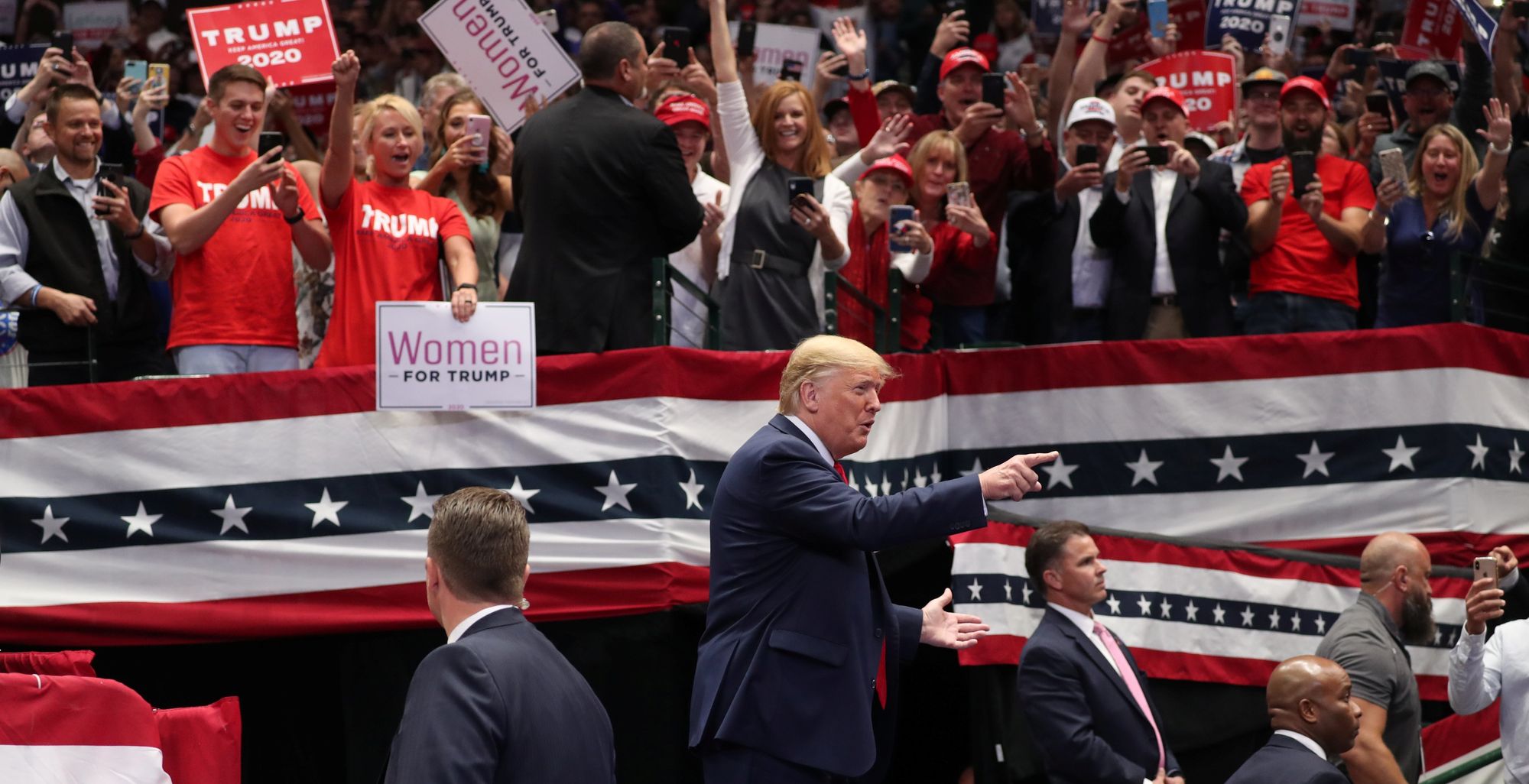By: Aaron Zitner and Alex Leary – wsj.com –
Donald Trump won the White House in large part by changing the mix of voters who make up the Republican Party. Now, as he faces the threat of impeachment, the party base he helped to create is proving to be his most important barrier to removal from office.
Mr. Trump accelerated the movement of working-class voters into the Republican Party, creating a GOP that now represents more middle- and lower-income Americans, a Wall Street Journal analysis shows. He has reframed much of the Republican agenda to appeal to these voters, particularly on trade, immigration and foreign affairs, in many cases upending 40 years of GOP policy.
And Mr. Trump’s combative personal style and dominating presence in the nation’s political discourse have created an unusually tight bond with the new GOP base.
The result: Mr. Trump heads into the impeachment inquiry—the most dangerous political waters of his presidency—with support from the vast majority of his party. Some 84% of Republicans approve of how Mr. Trump is handling his job, essentially unchanged from 86% just after he was sworn in, Journal/NBC News polling this month found. More than three-quarters of Republicans say Congress should abandon the impeachment investigation.
“This is Donald Trump’s party, and everyone knows it,” said Peter Wehner, a critic of the president who served in the Reagan and both Bush administrations.
Compared with his first year in office, Mr. Trump is even stronger in the communities that swung most heavily behind him during the 2016 election, the Journal analysis finds—an important signal to elected officials in those communities of the costs of abandoning the president as Congress takes up impeachment.
Some 62% of voters approve of Mr. Trump’s job performance in the 450 counties in which Mr. Trump outperformed 2012 GOP presidential nominee Mitt Romney by 20 points or more, Journal/NBC News polling this year finds. That is up from a job approval rating of 43% in those counties during Mr. Trump’s first year in office.
Rep. Matt Gaetz, the Florida Republican who is one of Mr. Trump’s most prominent explainers and defenders, said the president has succeeded by reshaping the electorate around his own message.
Rep. Matt Gaetz (R., Fla.) demands an end to the impeachment inquiry at a rally in Miami on Oct. 11. Photo: Ellis Rua/Associated Press
“In pre-Trump Republican politics, I think a lot of the messaging and electioneering efforts were geared toward winning the middle” because candidates believed the electorate was static, Mr. Gaetz said. “The president’s biggest impact on an election is the way that he shapes the electorate itself, and that’s different from most politicians.”
Nearly three years into Mr. Trump’s presidency, the Republican Party is about the same size as before, Journal/NBC News polling finds. Some 36% of voters have called themselves Republicans this year, compared with a consistent 37% last year, in 2016 and in 2012.
But the composition of the party has changed, relying more heavily on voters without a bachelor’s degree, often called working-class voters. The shift predates Mr. Trump, but he appears to have amplified it with a policy agenda that broke from a governing consensus that had lasted roughly from Ronald Reagan through former House Speaker Paul Ryan (Wis.), who left Congress in January.
While Mr. Trump has adopted and even deepened the Republican commitment to business deregulation, tax cuts and nominating conservative judges, he has broken from many prior GOP leaders to build an agenda that aims to appeal to lower-income voters or those who weren’t benefiting from the nation’s economic growth.
Mr. Trump told voters he would protect Social Security and Medicare, differing from some party leaders who called for austerity and reforming social programs.
To see this article and subscribe to others like it, click read more.
 Listen Online
Listen Online Watch Online
Watch Online Find a Station in Your Area
Find a Station in Your Area










 Listen Now
Listen Now Watch Online
Watch Online
